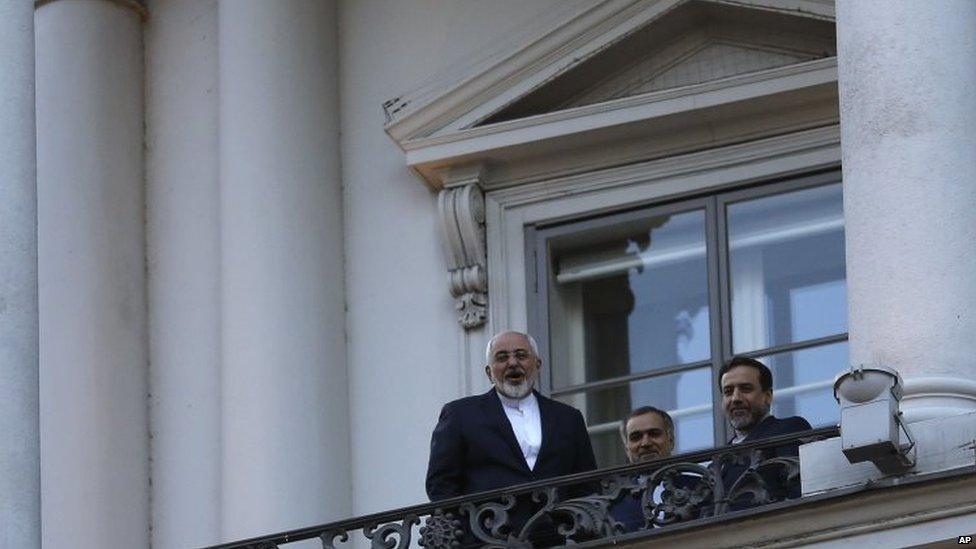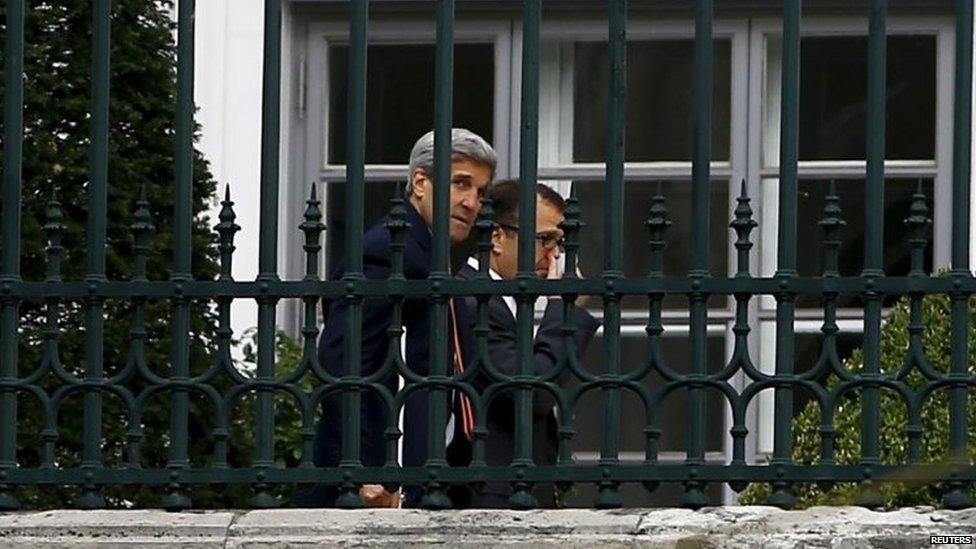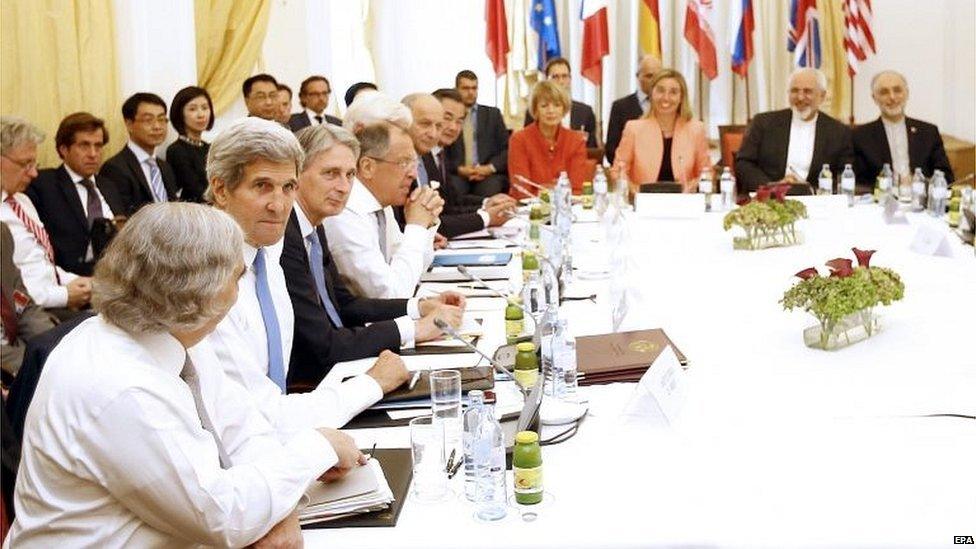Iran nuclear: US 'will not be rushed over deal' - Kerry
- Published
John Kerry: "Some of the tough issues remain unresolved"
US Secretary of State John Kerry has said that America and other major powers are not in a rush to reach a nuclear agreement with Iran.
But he warned that the so-called P5+1 (US, UN, Russia, UK, France and Germany) would not wait indefinitely.
Meanwhile, Iranian Foreign Minister Mohammad Javad Zarif tweeted:, external "We're working hard, but not rushed, to get the job done."
The pace at which sanctions are lifted is a major issue at talks in Vienna.
Pressure is mounting on world powers and Iran to reach a deal on its nuclear programme and avoid the issue becoming bogged down in the US Congress.
Congress has 30 days to review any agreement as long as it receives the text by midnight Washington time (04:00 GMT on Friday). Failing that the review period will be 60 days, which will delay the lifting of US sanctions.
'Critical time'
"We're here because we believe we are making real progress," Mr Kerry told reporters in the Austrian capital Vienna on Thursday.
Behind the scenes at the Iran talks - Barbara Plett Usher reports
But he cautioned that "we are not going to sit at the negotiating table forever" and that he was prepared to "call an end" to nuclear talks with Iran if "tough decisions" are not made.
"We also recognise that we shouldn't get up and leave simply because the clock strikes midnight. And I emphasise, given that the work here is incredibly technical and that the stakes are very very high, we will not rush and we will not be rushed."
Mr Kerry said that any deal had to withstand the test of time.
"It is not a test of a matter of days or weeks or months, it's a test for decades, that's our goal here."

Iranian FM Mohammad Javad Zarif (left) said he wanted to reach a deal

Mr Kerry (left) - on crutches - could be seen in deep conversation in the garden of the Palais Coburg, the hotel where the talks are being held
Mr Zarif, who leads the Iranian negotiators, earlier said he wanted to reach a deal. And he added on his Twitter page: "Mark my words; you can't change horses in the middle of a stream."
Separately, French Foreign Minister Laurent Fabius said he would be staying in Vienna to continue the negotiations, saying that "things are going in the right direction".
EU foreign policy chief Federica Mogherini described the talks as "sometimes heated" but overall "constructive".
The White House has said that it is unlikely that the talks will go on for many more weeks. A 30 June deadline imposed by both sides has already been missed.
The P5+1 and Iran are still believed to differ in three key areas - international inspections of Iran's non-nuclear sites, sanctions, and how Iran's compliance will be verified.
Iran also wants a UN Security Council arms embargo to be scrapped - something the US has ruled out.
World powers want to be satisfied that Iran is neither trying to develop a nuclear bomb, nor has the capability to do so in under at least a year. Iran insists its nuclear programme is for purely peaceful purposes.

The two sides have already overrun self-imposed deadlines in pursuit of a final deal on Iran's nuclear programme
If Congress rejects the deal, President Barack Obama can use his power of veto, but Congress can still overturn this. An extended review could help opposition to a deal build in the Republican-controlled legislature.
Under an interim accord, Iran and the P5+1 agreed that crippling sanctions would be eased in return for curbs on Iran's nuclear programme.
Both sides at the Vienna talks said they hoped for progress on Thursday, though there has been little concrete sign of a breakthrough.